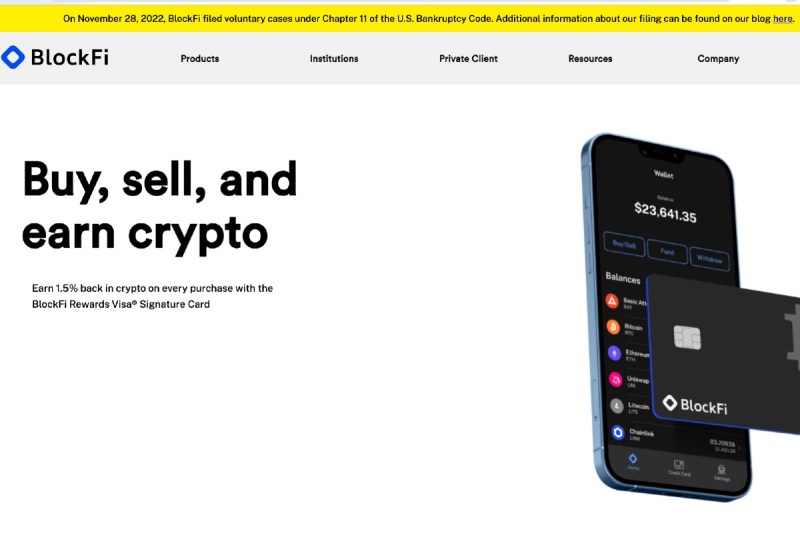The crypto contagion that was FTX has claimed its first victim. Per Reuters, the crypto trading platform BlockFi filed for Chapter 11 bankruptcy this past Monday. In doing so, the BlockFi bankruptcy aims to one, clear itself of debt in order to repay creditors, and two, reestablish itself as a legitimate platform for customers and investors.

According to The Wall Street Journal, Alameda Research, the hedge fund that was supposed to stand as collateral for FTX, defaulted on a $680 million loan to BlockFi when FTX collapsed. Realizing that recovery without bankruptcy created an instant liquidity crisis for BlockFi, founders Zac Prince and Flori Marquez were quick to file for insolvency in order to make sure that the platform would eventually be able to pay its remaining debts. The blockchain firm views this as a reorganization as opposed to a disintegration.
“Rest assured, we will continue to work on recovering all obligations owed to BlockFi as promptly as practicable,” NPR reported the company said in a letter to customers.
This is in direct contrast to the billions that FTX will almost certainly never be able to return to lenders and investors. While BlockFi ceased withdrawals and requested customers halt deposits, this does not mean they do not intend to honor these investments. On Tuesday, BlockFi attorney Joshua Sussberg asserted that the platform will pursue a court ruling to permit investors in the BlockFi Wallet program to withdraw money during the bankruptcy proceedings (per Reuters).
“If it’s in your wallet, it stays in your wallet,” Sussberg said.
During the hearing, Reuters reported that U.S. Bankruptcy Judge Michael Kaplan approved BlockFi’s continued employee payments, managing bank accounts, and additional steps to maintain day-to-day operations during bankruptcy proceedings.
The WSJ found that BlockFi is hopeful for a quick exit from chapter 11, enabling a swift subsequent recovery for customers and investors. This will be a challenge seeing as the crypto firm’s “top 10 creditors alone are owed close to $1.2 billion,” according to the WSJ’s examination of its filings with the U.S. Bankruptcy Court in Trenton, N.J. The sum total of Blockfi’s liabilities is likely much more as the blockchain company also owes about $730 million to Ankura Trust Company LLC, the trustee for its U.S. interest-earning customer accounts.
These interest-bearing incentivized accounts already got BlockFi into hot water, which led to a $100 million settlement in February. BlockFi agreed to fork over a $50 million fine to the Securities and Exchange Commission, and $50 million to state regulators for what the overseers deemed unregistered incentives.
While the crypto contagion released by FTX could mean a significant restructuring of BlockFi and a possible change of ownership, industry insiders still view this as a “turning point” — a rooting out of a necessary evil that will clear the way for a brighter blockchain future.




